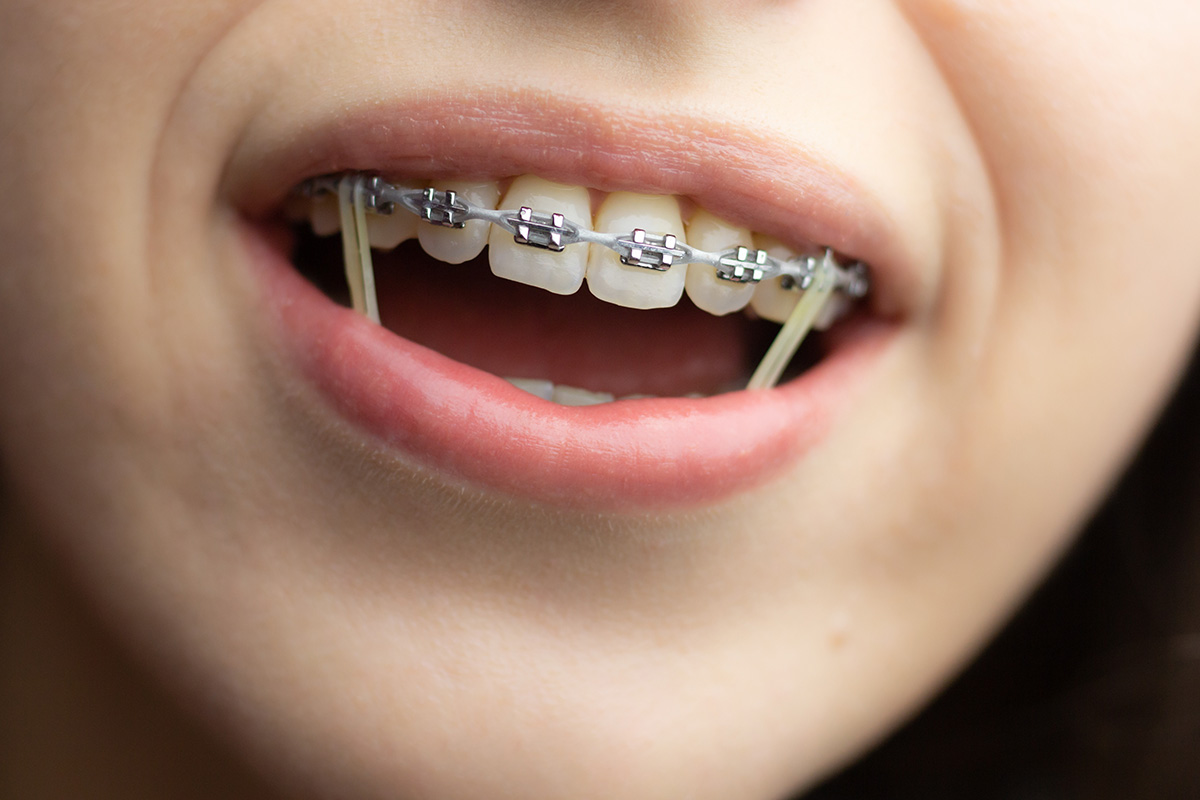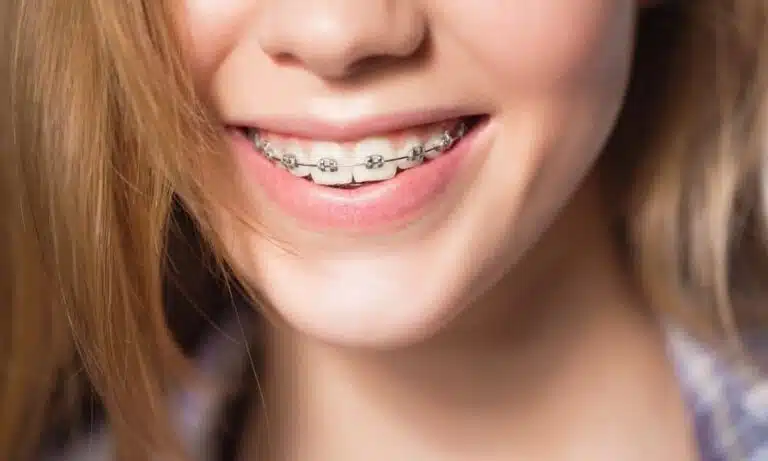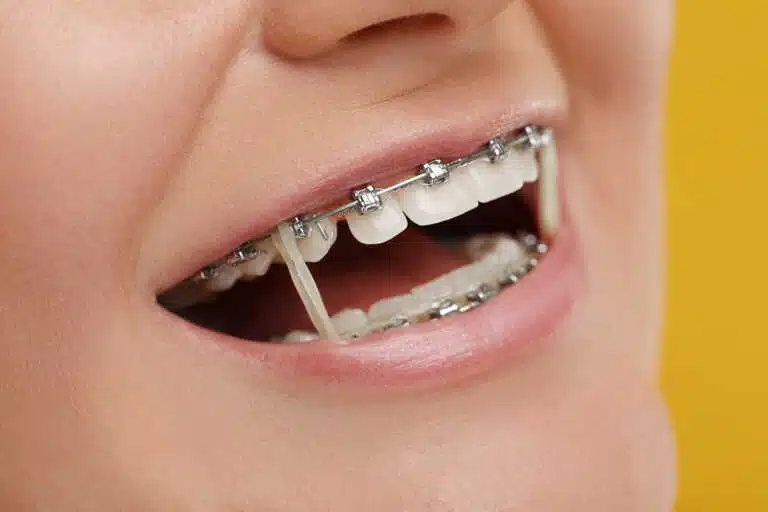As a parent, you always want what is best for your child, and sometimes this may come as an orthodontic treatment for your young ones. This type of treatment usually involves using braces and other controlled appliances to correct the position of the teeth and jaws and improve not only function but also appearance. While it has a host of benefits, one of the challenges that you are likely to experience in the course of this treatment is broken brackets or wires. In the event of this occurrence, it is important to know how to act to limit your child’s discomfort and ensure the effectiveness of the treatment. This article will delve into the causes of these breakages, measures that you should take in case they occur, and how to limit such incidents.
What May Cause Bracket or Wire Breakages
Before examining how to deal with broken brackets or wires, it is important to understand the causes of these breakages. Knowing what causes these issues could help you prevent them, and as the saying goes, prevention is better than cure. Here are some common causes of breakages.
Eating Hard Foods: With healthy teeth, there might be no wrong or hard food to eat, but when undergoing an orthodontic treatment, it is advisable to be choosy with the foods that your young eat. Eating hard or sticky foods is one of the common reasons for brackets or wire breakages. These foods exert extra pressure on the braces which may in turn cause breakages. It is important for your kids to avoid hardy foods such as nuts, hard pretzels, thick chips, popcorn, and hard candy.
Poor Oral Hygiene: Orthodontic treatments do not exempt one from proper oral hygiene in fact good oral hygiene is even more important during this period. When left unattended plaque can build up around the braces which will in turn weaken them and sometimes lead to breakages. It is important to emphasize the importance of good oral hygiene during this period. Ensure that your child maintains good oral hygiene by regularly brushing and flossing to minimize the risk of breakages.
Accidents and Trauma: Children are often active and in the course of these activities accidents may occur. Unexpected falls, collisions and other traumatic incidents can lead to broken brackets or wires. If your young ones are into active sports, it’s advisable to ensure that they have the right protection in place. Opt for protective and precautionary measures such as mouthguards to limit the chances of injury during sporting activities.
Chewing Non-Food Items: One of the most common habits of children is chewing non-food items such as pencils, pens, and candy sticks. This is mostly out of curiosity, and it can often lead to damage to braces or bracket and wire breakages. It is important to discourage this behavior and warn your young ones of the dangers of engaging in the same.
Wear and Tear: Lastly, the natural wear and tear of braces may sometimes lead to breakages. Since braces constantly endure pressure during the course of chewing, they may sometimes give in. This will especially apply to long-term orthodontic treatments, and as such, it is important to regularly contact your orthodontist.
Now that we have examined the causes of brackets or wire breakages it is time to look into the measures you should take in such an occurrence.
Measures to Take in Case of a Loose or Broken Bracket or Wire
Limit the Pain/Discomfort
A broken bracket or wire may cause immediate discomfort, so before visiting your orthodontist, you may need to take some action to minimize the discomfort and protect your child’s mouth. Some of the common fixes you may apply in this situation include using tweezers to move the wires wire or broken brackets to a more comfortable position. You can also apply orthodontic wax to sharp wire edges to provide some relief until you can visit a specialist. You can purchase this wax and most drugstores.
Contact an Qualified Orthodontist
Once you have found a way to limit or prevent pain and discomfort, you should immediately contact your child’s orthodontist. Even though wire or bracket breakage may seem like a small issue, if not handled expertly and with care, it could have more serious repercussions. Describe the issue and follow any advice that is offered. Orthodontists will provide expert help, schedule a repair, or provide you with guidance on the next steps to take.
Keep the Component
In case a bracket comes off and is still attached to the wire or if the wire is still intact then it is a good idea to keep and take it with you on your next orthodontist visit. Find a small clean container or a plastic bag and store the broken piece. This broken piece may be crucial for the orthodontist to determine the extent of the damage and the measures to be taken to repair the damage or reattach the brace.
Diet Adjustments
Even with a broken brace or wire, your child will still need to eat. While awaiting the orthodontist appointment, it is advisable to adjust the diet accordingly to avoid dealing with any extra damage to the brace. Ensure that your young one avoids eating any hard, crunchy, or sticky foods that will exert extra pressure on the broken braces. Amend the diet to include soft foods and liquids that will limit any further damage.
Maintain Good Oral Hygiene
Even with a broken bracket or wire maintaining good oral hygiene is paramount. Failure to maintain good oral hygiene could further exacerbate the issue and even cause unnecessary complications. Encourage your child to maintain proper hygiene by gently and carefully brushing their teeth and flossing, paying attention to the area round the broken brace. If the said area is sensitive you can opt for teeth sensitive toothpaste.
Follow Orthodontist Instructions
Once you have contacted or visited your orthodontist they may provide specific instructions for care and maintaining your braces during this period. It is important to ensure that your child follows these instructions to the later to promote the healing process and the effectiveness of the treatment.
Types of Brace Damage that Your Child May Experience
Just like adult braces, children braces are susceptible to three kinds of damage: loose or floating brackets, a broken arch wire, and a wire protruding from the last bracket. Here is a detailed look at the three types of damage
Floating Bracket
Brackets are the parts of braces that are attached to the tooth using a special type of adhesive. When the bracket dislodges from the tooth, it can hang or remain on the wire and start moving along it. This may cause some discomfort and may even lead to gum or tooth injury. Even though it will rarely cause as much pain and damage as other breakages, the process of the bracket rubbing on the inside of your mouth can cause injury. While you can move the bracket along the teeth to minimize the discomfort, this is not a long-term solution. Contact an orthodontist to schedule an appointment to have your child’s bracket attached to their teeth.
Broken Wire
A broken wire is one of the serious damages that can occur to your child’s brace. The sharp edge of the wire may poke into your cheek or gum and cause bleeding or injury, as well as increase the chance of gum infection. If you notice a broken wire on your child’s brace, it is advisable to contact your orthodontist immediately. Attempting to cut or repair the wire yourself may result in more injury or lead to the child swallowing the clipped wire, which may cause other health concerns.
Protruding Wire
During the teeth movement such as chewing or biting on other objects there are chances that the wire that connects the brackets will come out of the last bracket. This is different from a broken wire in that it is not caused by damage but rather by excessive pressure of constant movement. However, it is important to note that a dislodged wire may cause damage similar to that of a broken wire. An orthodontist can help correct this dislodgement and cover any sharp ends that may cause mouth or gum damage.
Conclusion
Orthodontic treatments are not only an investment in your child’s health but also their confidence and smile. Even though bracket and wire breakages may be a cause of concern, they are part of the journey and shouldn’t cause an alarm. Understanding the cause of these breakages can help you know how to avoid them and prevent such occurrences. In the unfortunate event of such occurrences, it is important to understand how to respond. Following the aforementioned steps will help you stay ahead of the situation and ensure that your child’s treatment stays on track.
Most importantly, you should contact a qualified orthodontist with vast experience in children’s braces. Elara Orthodonticsin Houston Heights is one of the best orthodontist near Houston who can help your child with any braces or brace breakage problems that they may have. Contact Elara Orthodontics in Richmond Texas for expert orthodontist services and consultation.




